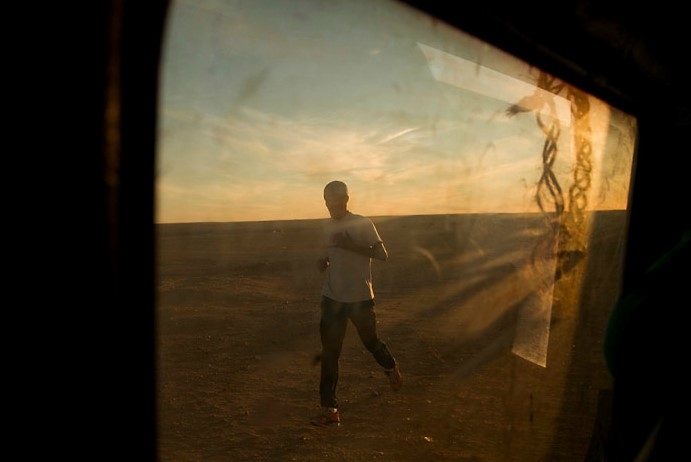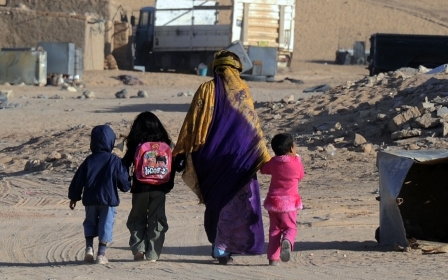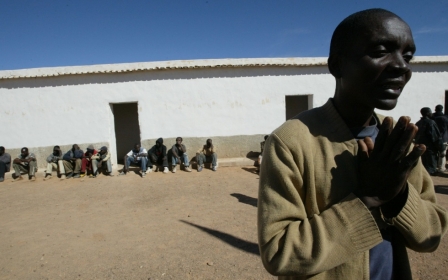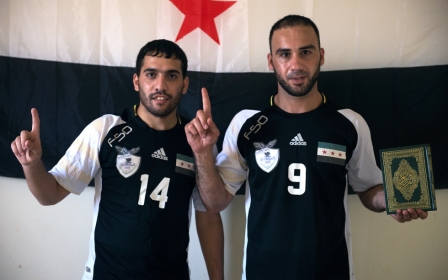Film review: The Runner

Inhospitable landscapes frame the story of The Runner, a documentary about the life of a champion runner from the disputed territory of the Western Sahara. France’s cold, grey suburbs and the hot and dusty Sahara provide the backdrop for this illuminating tale, the first feature-length offering by freelance director Saeed Taji Farouky. Despite its narrow focus, the film deftly weaves a complex tale, shedding light on the struggles of migrant life, the joys of sporting achievement and the hypocrisy of France’s foreign policy.
Western Sahara, often dubbed the last colony in Africa, is a territory that has been fighting for independence for much of its existence. As Morocco won independence from Spain in 1975, the semi-autonomous region of Western Sahara became a battleground between Morocco and Mauritania, which both sought to control the sparsely-populated patch of land, and the Polisario Front, fighting for recognition of their home as an independent state. Mauritania withdrew in 1979 – decades on, though, the fight between Morocco and Western Sahara goes on, complicated by international diplomatic wrangling and business interests in the territory’s natural resources. The history of Western Sahara is one of struggle, and the life of the refugee runner Salah Ameidan illustrates that struggle as well as anything.
In this delicate and moving documentary, we follow Ameidan day by day, as he slowly unspools the tale of his exile from his home town of el-Aaiún, the town administrated by Morocco that Western Saharans call their capital. Ameidan, recognised as an exceptional runner at 12, was pressured by Moroccan authorities to move from his Western Saharan home to their capital in Rabat. He ran under the Moroccan flag for 10 years, winning race after race on the international stage. As Ameidan’s story unfolds, though, a darker side emerges - it is a tale that says a lot about the harsh realities of life under occupation in Western Sahara, where evenraising the national flag can land you in a Moroccan jail.
A man of quiet humility on screen, Ameidan has said in a previous interview that he allowed himself to be followed for the documentary because “the commentary will be useful for the national interest of Sahrawis [Western Saharans].” The film is certainly an excellent platform for a human story of migration, and the wider history of Western Sahara.
What the film really throws light on, though, is the hypocrisy of France, where Ameidan now lives as a political refugee. We see him struggling to get by when his asylum benefits fail to appear, kneeling on the floor of his freezing flat as he tries to heat it with a tiny gas burner. Many members of his family have also fled to France to escape oppression in Western Sahara. Yet as France grudgingly accepts refugees from the territory, it continues to tacitly support Moroccan human rights abuses, documented by international NGOs like Human Rights Watch and Amnesty International. France is accused of blocking attempts in April to persuade the UN force working in the region to monitor human rights abuses, a proposal France’s old ally Morocco has long opposed. Now, as activists on the ground in Western Sahara grow weary of international disregard for their plight, the story of The Runner and Ameidan’s flight to France are more important than ever.
New MEE newsletter: Jerusalem Dispatch
Sign up to get the latest insights and analysis on Israel-Palestine, alongside Turkey Unpacked and other MEE newsletters
Middle East Eye delivers independent and unrivalled coverage and analysis of the Middle East, North Africa and beyond. To learn more about republishing this content and the associated fees, please fill out this form. More about MEE can be found here.




